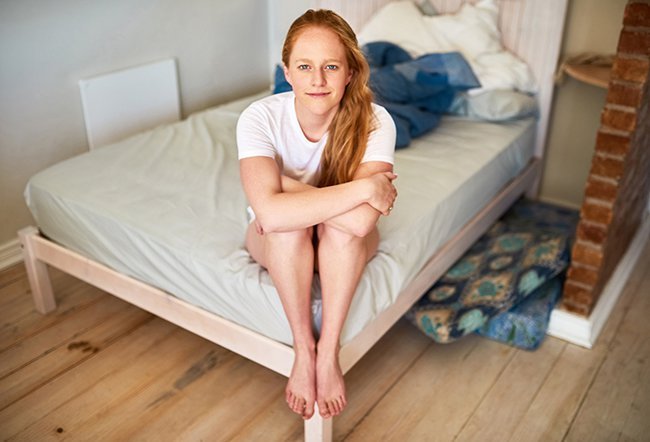What causes genital itching and how to stop it

Itchy genitals can be a symptom of many different conditions. You can stop your private parts from itching at night by washing them regularly, wearing clean underwear, and eating a balanced diet.
Itchy genitals can be a symptom of many different conditions. Some of these conditions cause worse itching at night, while others may seem worse at night because you have increased awareness since you’re not focused on doing something else. If you have itchy private parts at any time of day or night, you should talk to your doctor. They can help you find the underlying cause and help you to stop your private parts from itching at night.
There are several conditions that can cause genital itching that gets worse at night.
Jock itch
This is a fungal infection that gets its name because it is common in athletes. The fungus thrives in warm, moist environments, like the groin, especially in people who wear tight clothes frequently. With jock itch, you may experience itching on your genitals, thighs, buttocks, or anus. People of any gender can experience jock itch.
Most cases of jock itch can be cured with over-the-counter antifungal creams. If you try one and your symptoms do not go away, talk to your doctor or a dermatologist. Make sure to dry off thoroughly after showers and workouts.
Yeast infection
A vaginal yeast infection is a common cause of vaginal itching. You always have some candida, a fungus, in your vagina, but the balance of vaginal microorganisms can be disturbed, and the candida can grow too much.
Many things can cause your vaginal flora to become unbalanced. You can get a yeast infection from taking antibiotics or having a weakened immune system. People who are pregnant or taking hormonal birth control may also be more prone to getting yeast infections.
Symptoms of a vaginal yeast infection include:
- Itchy vulva and vagina
- Thick, white, lumpy discharge
- Vaginal redness and swelling
- Cracked genital skin
- Burning during urination
You can treat many yeast infections with over-the-counter topical antifungal medication. However, if you are not sure what is causing your vaginal itching, it is best to consult a doctor first. Additionally, if you try the over-the-counter medication and it doesn’t work, your doctor can prescribe a pill to treat the infection.
Allergic reaction
Your genitals can react to products like lubrication, condoms, baby wipes, scented soaps, vaginal douches, scented panty liners, and hygiene sprays. While anyone can have a reaction to products used on the genitals, women seem more prone to it.
If you suspect your genital itching is caused by a product, stop using it. Once you eliminate that product, your genital itching should fade away gradually. Your doctor can help you identify what might be causing the reaction.
Pinworms
Pinworms are a parasite that lives inside your intestines. They travel down to your rectum to lay their eggs, typically at night. When they lay their eggs there, the itching intensifies. It can be so itchy that it wakes you up in the middle of the night.
If you suspect that you have pinworms, you will need to see your doctor for a diagnosis. They may recommend over-the-counter or prescription medication. Typically they will prescribe medication to everyone in your household to avoid a recurring infection.
Genital herpes
This is a sexually transmitted infection (STI) that causes small blisters to appear on the genitals. Some people experience itching as part of an outbreak, especially when one is just starting. Other symptoms are pain, red bumps, white blisters, and scabs. You may also feel ill with symptoms like fever, muscle aches, and swollen lymph nodes.
Genital herpes can not be cured, but there are prescription medications you can take to lessen the duration and severity of outbreaks to relieve pain and itching.
Trichomoniasis
This is a sexually transmitted parasitic infection. Symptoms include:
Treatment for trichomoniasis is a pill that kills the parasite. To avoid reinfection, you and all of your recent sexual partners should receive treatment.
Lichen sclerosus
Anyone can get this condition, but it is more common in menopausal women. It appears most often on the anus and genitals. It causes patchy white skin that can also be severely itchy. The cause is not known, but the condition is not contagious.
The available treatments for lichen sclerosus include corticosteroid creams to reduce the itching and reduce the risk of scarring. Even if the condition goes away after treatment, it may come back.